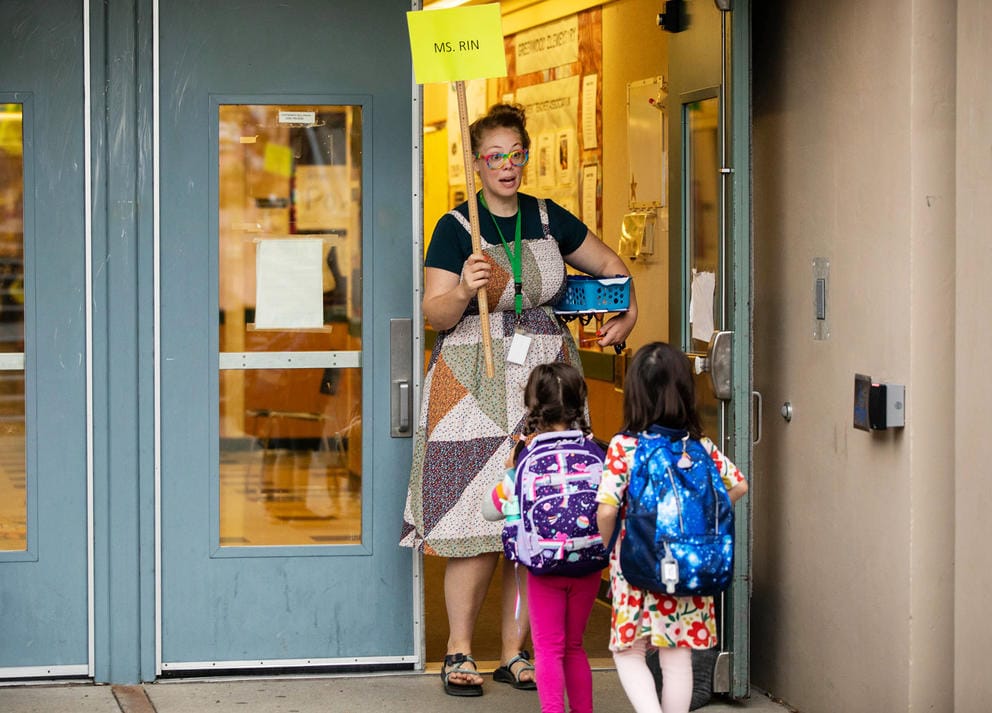Washington is a national outlier when it comes to the age at which students are required to be registered for school.
That could change with a bill that recently passed through the Washington Senate’s education committee. Senate Bill 5020 aims to lower Washington’s compulsory school age from 8 – the age of a typical second or third grader – to 6.
If SB 5020 passes, children as young as 6 will have to enroll in a public or private school or be homeschooled. State regulations would require families to register with their local districts, cover required subject areas and keep academic records. Unlike older homeschooled students, 6- and 7-year-olds would not be required by the bill to take academic progress tests every year.
Bill sponsor Sen. Lisa Wellman, D-Mercer Island, chair of the Senate Early Learning and K-12 Education committee, said the bill makes sense given Washington’s emphasis on early learning and kindergarten readiness, including subsidizing preschool programs for income-eligible families.
“In general, this state has been a leader in early childhood education and understanding that education – and I don’t mean just sitting at a desk – that learning as early as possible has benefits,” Wellman said. Those ages, she said, are critical for language development and other skills “to enable them to fulfill their best potential.”
But parents who testified against SB 5020 earlier this month argue that the change isn’t necessary and would put some students in school before they’re ready. It would also, they said, place extra burdens on parents who are homeschooling their students in the early grades.
“It’s a question of who better understands a particular child’s needs, the state or the parents? I would argue that it’s the parents. They are the people who are in the best position to determine if their child is ready,” said Jen Garrison Stuber, advocacy chair of the Washington Homeschool Organization, who testified against the bill.
Washington’s 8-year-old compulsory school start age is the highest in the U.S. A dozen states, including Indiana, Louisiana, Idaho and Minnesota, require education to start by age 7; eleven states, including Arkansas, Connecticut, Oklahoma and Virginia, and the District of Columbia, require enrollment by age 5. The remaining 26 states require students to start at age 6.
However, Washington is like most other states in that it allows families to enroll children who are age 5 by Aug. 31 in kindergarten at public schools.
Legislators have made proposals similar to SB 5020 over the years, including in 2013 and 2011, but they failed. Last session, the same Senate committee passed a proposal, but the bill languished in the Ways and Means committee, where it didn’t get a hearing. That bill initially called for compulsory education to start at age 5, but was amended to age 6 as a compromise.

A teacher leads her students into Greenwood Elementary on their first day of school, Wednesday, Sept. 14, 2022. With SB 5020, Washington is proposing to lower the required school enrollment age from 8 to 6. (Amanda Snyder/Crosscut)
Wellman added that it’s not expected that many new students would enroll in public schools should the bill pass. With no school requirement until age 8, there’s no official count of how many 6- and 7-year-olds are not getting a formal education. It’s also not clear how many Washington families are homeschooling kindergarteners through second graders. Garrison Stuber said that statewide, about 29,000 students ages 8 to 18 are registered as homeschooled.
Wellman added that lowering the compulsory age could help parents who choose homeschool, because they could then ensure that their 6- and 7-year-olds keep up with their age-group peers.
The parents “can implement and understand the learning standards. They can report that ‘Yes, we’re on target, we’re developing,’” Wellman said.
“The majority of homeschoolers are doing a fabulous, fabulous job,” she added. “The homeschoolers talk very proudly of their children. I have no interest in stopping what they’re doing.”
But the parents who came to testify at a recent hearing before the Senate Early Learning and K-12 Education Committee said the bill would impact family decisions, including some who want to delay enrollment if their child isn’t ready for school.
Garrison Stuber said that under the bill, parents who feel their children aren’t emotionally or developmentally mature enough for school would have no option but to send their child to kindergarten, if they can’t afford a private kindergarten or can’t dedicate the time to homeschooling.
“Not everyone can afford to redshirt their kid that way. It’s partially a question of equity – what if you can’t afford to send your kid to a private school to hold him back until they’re ready?” Garrison Stuber said. “It’s not a homeschool issue, it’s a parent’s-rights issue.”
An amendment to SB 5020 that would have exempted homeschooling parents from the requirements was rejected by the committee earlier this month. The bill now awaits a hearing in the Ways and Means Committee.



